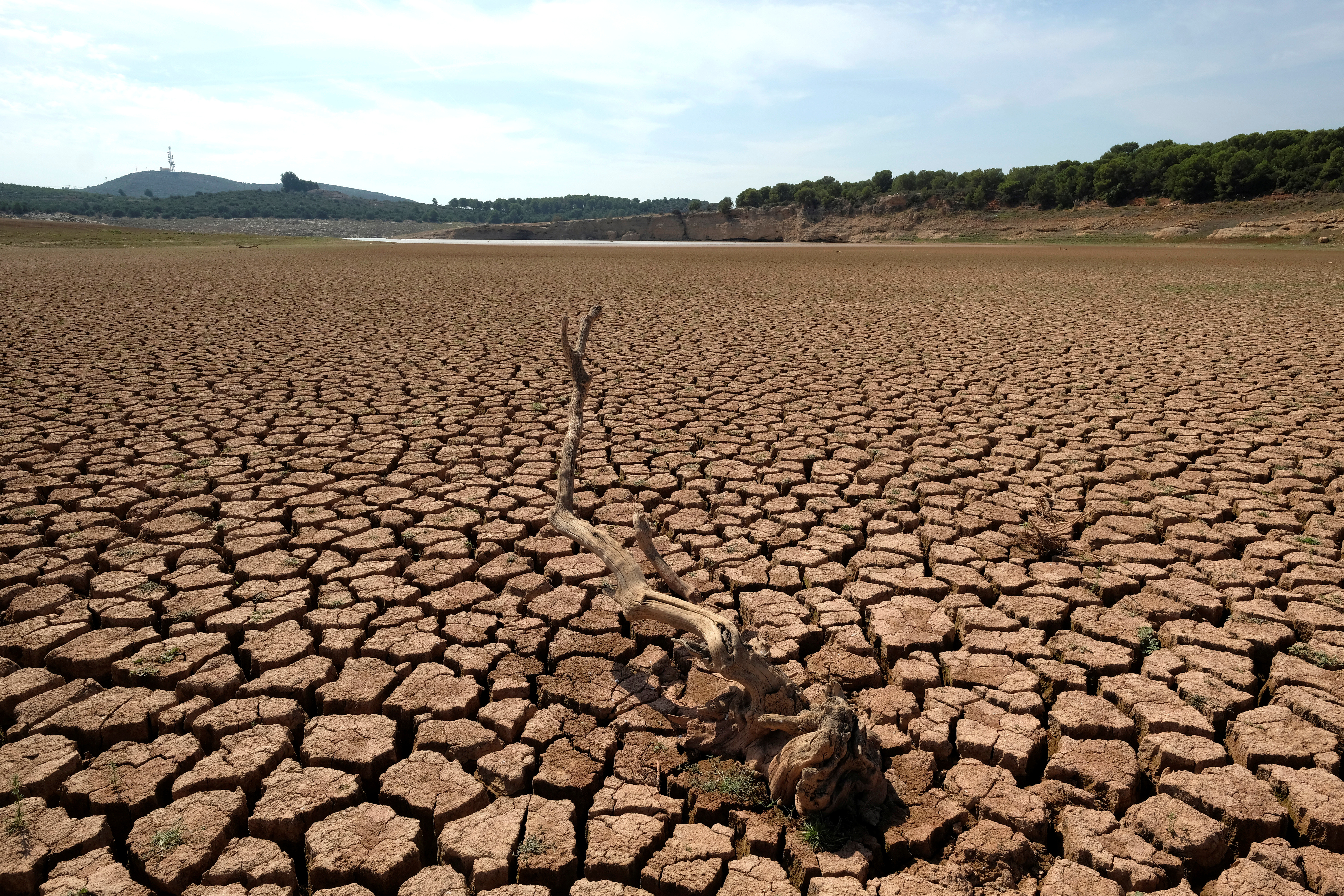Comment: We are finally treating growing water scarcity as the global crisis it is

The remains of a dead tree are pictured at an almost empty water reservoir during a severe drought near Castellon, Spain. REUTERS/Heino Kalis Acquire Licensing Rights
August 29 - With each passing day, the precarious state of the global water crisis becomes clearer. Escalating pollution. Record-setting droughts. Shrinking groundwater aquifers. As the situation worsens, more people, ecosystems and economies will pay the price. Recently released data from the World Resources Institute estimates one-third of global gross domestic product will likely be exposed to high water stress by 2050.
The warning came as nearly 15,000 business leaders, policymakers, advocates and researchers converged last month at World Water Week in Stockholm, Sweden, the leading annual water conference and the first global water convening since the historic United Nations 2023 Water Conference in March.
With urgency comes renewed energy. Riding the momentum of that event, discussions moved beyond defining the problem to inspiring action. And how that action will transform how communities, governments and the private sector think about, value, and manage water.
It was emphasised throughout the five-day event that water scarcity and pollution can no longer be a side issue but rather a priority issue for both the private and public sector.
Signaling just how quickly water risk is skyrocketing to the top of the economic and society agenda, the COP28 United Arab Emirates Presidency announced during the conference it is making water one of the critical priorities of the climate agenda at this autumn’s meeting of the world’s leaders, with the goal of driving progress and ambition on key priorities, including enhancing urban water resilience, bolstering water-resilient food systems, and conserving and restoring freshwater ecosystems.
The conference challenged investors, companies and policymakers to rethink innovation, not just as a component of technology but of governance, finance, values and culture. Conversations encouraged investors and companies to think outside of the box when it comes to financing for water interventions and engaging supply chains around water solutions.
A sprinkler sprays water on a field of sugar beets in Blecourt amid a drought across France in June 2023. REUTERS/Pascal Rossignol Acquire Licensing Rights
Industry is the single largest user and influencer of freshwater resources globally and has much to lose from critical water risks as population pressures and climate risks grow. Half of the publicly traded companies in the four major U.S. stock indexes are in industries with medium-to-high water risk.
Strengthening the business case for water stewardship is a key first step for investors and companies committed to making meaningful changes. More investors are getting involved, engaging with companies on how to address and manage water risks. This includes more than 90 global investors representing $17 trillion assets under management that have committed to work with companies with large water footprints through the Valuing Water Finance Initiative. These investors have laid out a set of six water expectations for companies to meet to address their broad water impacts by 2030.
A forthcoming benchmark analysis will assess where companies with some of the biggest impacts and dependencies on water are on their journey, shedding a light on leading practices and where more work needs to be done. The Ceres analysis, which plumbs publicly available company disclosures, will be a critical tool for investors as they work with companies to tackle the water risks they face and make the large-scale change needed to protect the water systems that sustain their businesses, as well as the economy and the planet.
We recently released an analysis that laid out a new approach for how companies can value water, quantifying not simply the cost of addressing water risks in their operations and supply chains, but also the significant business and societal return on investment they have to gain. Through a better understanding of the full value of water, companies can prioritise investments that set them up economically for success in the long term, and also benefit society, shoring up their license to operate by making a positive impact on the world around them.
As I left World Water Week, I felt hopeful. We have moved beyond just talking about the water crisis to working together on actions to mitigate it. I witnessed national leaders, corporate executives and investors coming together on innovative solutions to bring us closer to a more sustainable water future.
Make no mistake. We have a long way to go to meet critical water goals such as Sustainable Development Goal 6 by 2030. We need the critical mass within the private sector to help drive smart water management and tackle head on the water risks that businesses, investors, communities – and humanity – face. But I feel optimistic that we are all finally beginning to value water as the precious resource that it is.




